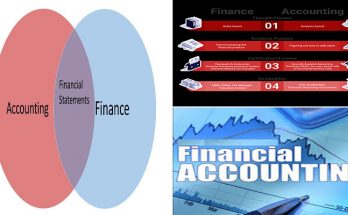In the world of business, budgeting and forecasting play a crucial role in planning and decision-making. One of the key tools utilized for this purpose is financial accounting. Financial accounting involves the preparation and analysis of financial statements to track the financial performance of a company. When it comes to budgeting and forecasting, there are several advantages to using financial accounting as a foundation:
1. Historical Data Analysis
- Financial accounting provides access to historical financial data, allowing businesses to analyze past performance and trends. This historical data serves as a valuable reference point for creating realistic budgets and forecasts.
2. Accurate Financial Reporting
- Financial accounting ensures accurate and consistent financial reporting, providing a clear picture of the company’s financial health. This accuracy is essential for creating realistic budgets and reliable forecasts.
3. Identification of Cost Drivers
- By analyzing financial statements, businesses can identify key cost drivers that impact their financial performance. Understanding these cost drivers is essential for creating effective budgets and forecasts that take into account all relevant expenses.
4. Monitoring Cash Flow
- Financial accounting helps businesses monitor their cash flow, enabling them to anticipate financial challenges and make informed decisions when budgeting and forecasting future expenses and revenue.
5. Compliance and Regulatory Adherence
- Utilizing financial accounting ensures that budgeting and forecasting processes adhere to all relevant regulatory requirements and accounting standards. This compliance enhances the credibility and reliability of the budgeting and forecasting reports.
6. Resource Allocation
- Financial accounting provides insights into the allocation of resources within the organization. By analyzing financial data, businesses can allocate resources effectively in their budgets and forecasts, optimizing operational efficiency.
7. Improved Decision-Making
- With the help of financial accounting data, businesses can make informed and strategic decisions when creating budgets and forecasts. The insights gained from financial statements enable better planning and resource allocation for future growth and sustainability.
Leveraging financial accounting for budgeting and forecasting offers a host of advantages that can help businesses navigate the complexities of financial planning with confidence and precision. By harnessing historical data, ensuring accurate reporting, and identifying cost drivers, companies can streamline their budgeting processes and develop more effective forecasts for achieving long-term financial success.





